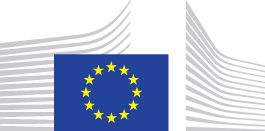As expected and reported on our TIPM Facebook page last week, the EU Commission has approved the Random House/Penguin merger.
From the Press Release:
Mergers: Commission clears creation of Penguin Random House, combining publishing businesses of Bertelsmann and Pearson
The European Commission has cleared under the EU Merger Regulation the proposed creation of Penguin Random House, combining parts of the publishing businesses of the media company Bertelsmann of Germany and the publishing company Pearson of the UK. The Commission found that the transaction would not raise competition concerns, in particular because the merged entity will continue to face several strong competitors.
The Commission assessed the impact of the transaction on the upstream markets for the acquisition of authors’ rights for English language books in the European Economic Area (EEA) and worldwide, and on the downstream markets for the sale of English language books to dealers in the EEA, in particular in the UK and Ireland. The Commission found that on both types of markets the new entity Penguin Random House will continue to face competition from several large and numerous small and medium sized publishers. As regards the sale of English language books, the merged entity will furthermore face a concentrated retail base, such as supermarkets for print books and large online retailers for e-books, like Amazon. In addition, the Commission’s investigation revealed no evidence that the transaction would lead to risks of coordination among publishers in relation to the acquisition of authors’ rights and the sale of English language books to dealers.
The Commission also assessed the impact of the transaction on third party book distribution, where both Random House and Penguin are active, as well as on the book production market given the vertical relationship between Bertelsmann’s activities in book production (through its Arvato division and BePrinters) and Penguin Random House’s activities in the sale of English language books to dealers. The Commission found that the parties have low market shares and that many alternative suppliers for book production and third party book distribution services remain active in the EEA.
As a result, the Commission concluded that the transaction would not significantly impede effective competition in the EEA.
The transaction was notified to the Commission on 26 February 2013.
Background on companies and products
Bertelsmann is an international media company whose core divisions encompass television and television production (RTL Group), trade publishing (Random House), magazine publishing (Gruner + Jahr), music rights management (BMG) and services (Arvato) in some 50 countries.
Pearson is active in publishing educational materials (Pearson), business information (Financial Times) and trade publishing (Penguin; which includes Dorling Kindersley Books and Rough Guides).
Penguin Random House will contain all of the English language trade publishing divisions of Bertelsmann’s Random House division in the United States, Canada, the United Kingdom, Australia, New Zealand, India and South Africa; the Spanish language trade publishing divisions of Bertelsmann’s Random House division in Spain and Latin America; but not Bertelsmann’s German language trade publishing division Verslagsgruppe Random House. It will also contain all of Penguin’s business and assets including its US, European, Australasian and Indian trade publishing divisions, its trade publishing company in China and its 45% stage in a Brazilian Portuguese language publishing house.
Merger control rules and procedures
The Commission has the duty to assess mergers and acquisitions involving companies with a turnover above certain thresholds (see Article 1 of the Merger Regulation) and to prevent concentrations that would significantly impede effective competition in the EEA or any substantial part of it.
The vast majority of notified mergers do not pose competition problems and are cleared after a routine review. From the moment a transaction is notified, the Commission generally has a total of 25 working days to decide whether to grant approval (Phase I) or to start an in-depth investigation (Phase II).
More information is available on the Commission’s competition website in the public case register under the case number M.6789.

